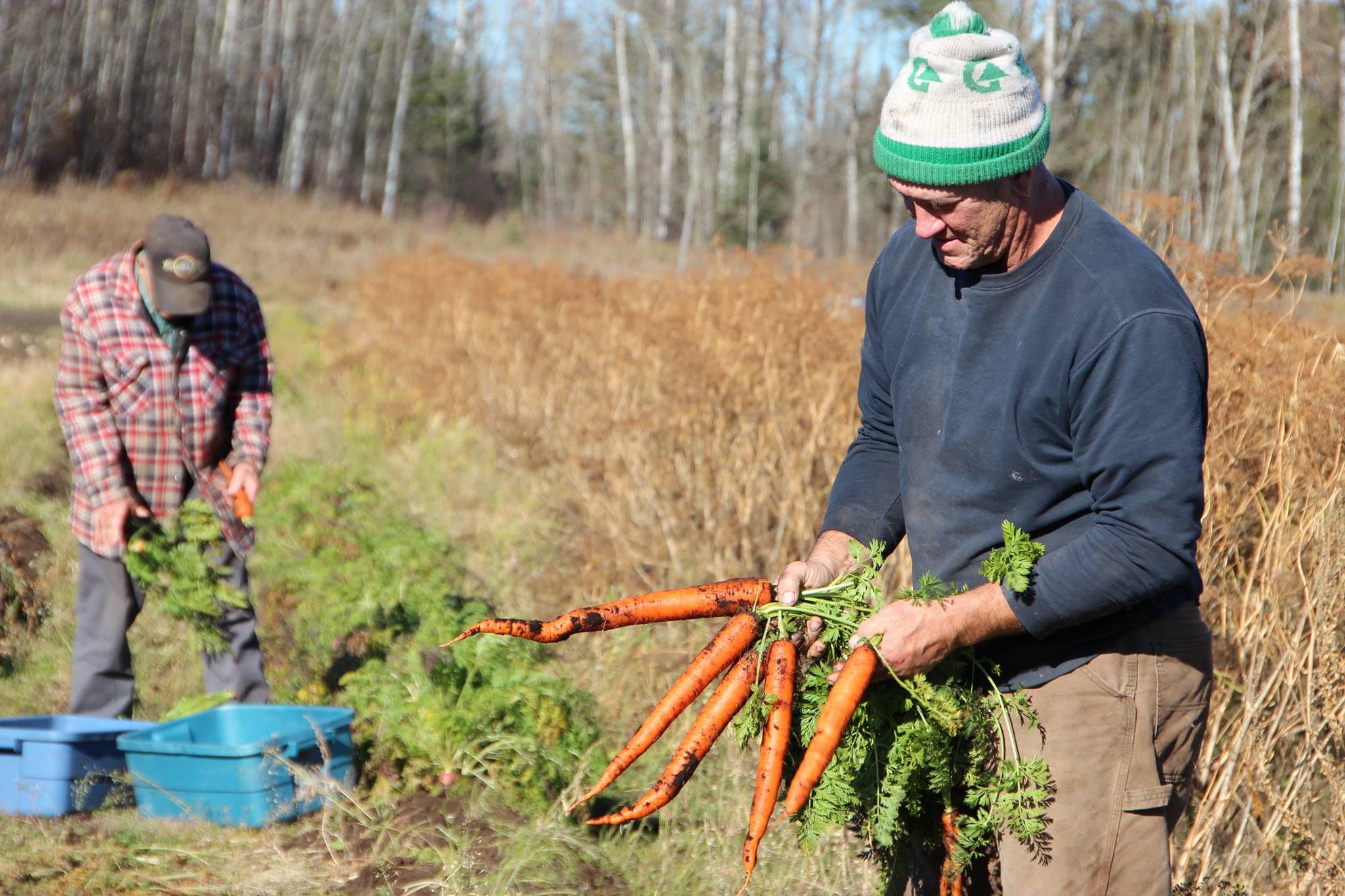Research in Action: Cloverbelt Co-Op Offers Insight for Northwest Agriculture

Photo cutline: From left, Bob and Tim Wall run Wall’s farm, just south of Oxdrift. The farm is a
member of the Cloverbelt Local Food Co-Operative. photo credit to Cloverbelt Local Food Co-Operative
Chronicle Journal November 8, 2017.
Dryden-based Cloverbelt Local Food Cooperative is a non-profit distribution network that connects 130 local food producers to consumers across the region.
As co-op members, consumers can browse and order a producer’s wares online, and then pick
them up at one of five distribution points. But Cloverbelt does much more than distribute
food—the typical function of a food co-op—which is why it is so interesting to Dr. Charles
Levkoe, Canada Research Chair in Sustainable Food Systems and Assistant Professor of Health
Sciences at Lakehead University.
Cloverbelt, under the direction of President Jen Springett, has built a community greenhouse
and revitalized an abattoir, and is working to find ways to bring fresh food to remote First
Nation communities, among other projects. Because it’s unique, Cloverbelt was included as one
of four case studies in Dr. Levkoe’s research on informal and under-recognized contributions of
food initiatives in the region, funded by the Social Sciences and Humanities Research Council of
Canada.
“Our work on this project is coming out of the needs of the region, not from us as researchers. I
am interested in how research can help to fill gaps and build capacity,” said Dr. Levkoe.
In partnership with Cloverbelt and others, Dr. Levkoe has worked closely with Dr. Connie
Nelson, Professor Emeritus of Social Work at Lakehead, among others, to support the
development of a regional food charter for Northwestern Ontario. A food charter would
recognize the right of every individual to have access to enough safe and nutritious food to stay
healthy and have energy for daily life, and provide policy recommendations to ensure this right.
“The food charters project is a synergy of researchers and co-op members,” Springett said. “We
know the food landscape in the region, and we’re good at outreach and talking to people about
food, but it would be difficult for an organization like ours to write a charter. Working with the
university has allowed us to develop evidence to support what we already know from our work
on the ground.”
In addition to developing the food charter, Dr. Levkoe’s team gathered more information about
producers’ experiences of being part of the co-op. Allison Streutker, who recently completed
her Honours Bachelor of Psychology at Lakehead, was one of four research assistants who
worked on the project. Streutker’s interest in the project came partly from her experience
growing up on a dairy farm in Slate River Valley, Ont., just outside Thunder Bay. She conducted
interviews to find out how Cloverbelt benefits individuals, businesses, and the environment.
“There is only so much you can learn in a classroom versus hands on. I liked that I was able to
build a relationship with Cloverbelt members,” said Streutker, adding that she also explored
Cloverbelt’s greenhouse project.
“Allison – as an outside researcher – was able to validate the importance of the work being
done through Cloverbelt and identify some of its challenges,” Dr. Levkoe said.
Springett said that Streutker’s feedback has been valuable, and that they will use the
information to plan future education and services for their members.
You can learn more about Cloverbelt at http://cloverbeltlocalfoodcoop.com/


